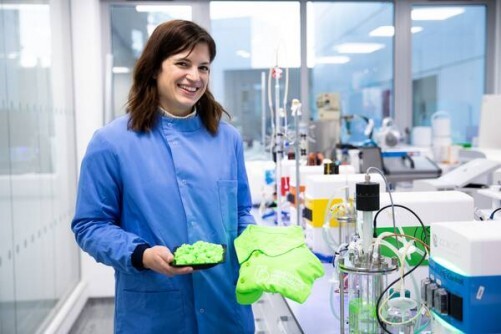‘Plastic-eating’ enzymes to be deployed to combat waste polyester clothing
Scientists at the University of Portsmouth are to develop ‘plastic-eating’ enzymes that could help solve the ever-growing problem of waste polyester clothing. Polyester is the most widely-used clothing fibre in the world but is currently not a sustainable textile option and will likely end up discarded in landfill or polluting the environment. It is made from polyethylene terephthalate (PET), one of the most common consumer plastics. Researchers at the University’s Centre for Enzyme Innovation have already developed enzyme technology to reduce single use plastics, including PET, to their chemical building blocks, leading to safe and energy efficient recycling. Now they have set their sights on creating a similar process for polyester textiles. The process of recycling synthetic fabrics using enzymes will not be an easy one. It is estimated that these textiles account for 60 per cent of clothes that are worn (EEA (2021) Plastic in textiles: towards a circular economy for synthetic textiles in Europe), and are often chosen for durability. Clothing has some of the lowest rates of recycling, with much of it being incinerated or ending up in landfill. Whilst it is possible to turn good quality oil-based textiles into carpets and other products, current recycling methods are highly energy intensive. Scientists hope that enzymes developed at the University of Portsmouth will help them create a environmentally-friendly circular economy for plastic based clothing.

